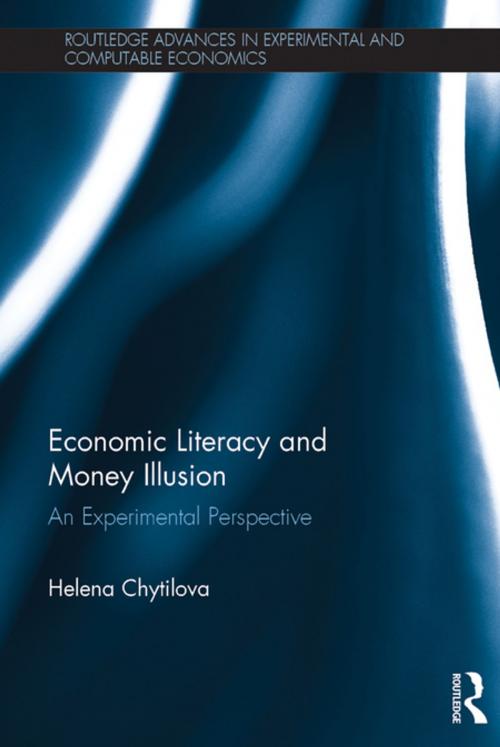Economic Literacy and Money Illusion
An Experimental Perspective
Business & Finance, Economics, Theory of Economics| Author: | Helena Chytilova | ISBN: | 9781315304458 |
| Publisher: | Taylor and Francis | Publication: | July 14, 2017 |
| Imprint: | Routledge | Language: | English |
| Author: | Helena Chytilova |
| ISBN: | 9781315304458 |
| Publisher: | Taylor and Francis |
| Publication: | July 14, 2017 |
| Imprint: | Routledge |
| Language: | English |
The concept of money illusion, a recently resurrected phenomenon of behavioral economics, is a real fact of economic life, the potential role of which should no longer be dismissed. Despite money illusion being utterly suppressed by mainstream economists, small deviations from rationality, together with trends in behavioral economics, alleviate the denial of money illusion induced by the rational expectations revolution. This book argues that money illusion seems to be a ubiquitous phenomenon, affecting various areas such as financial markets, housing markets, labor markets, consumption-saving decisions, and even development at the aggregate level induced by coordination issues. Furthermore, in light of the educational efforts of central banks and other institutions, it is worth considering whether solid economic training would provide guidance for the public regarding their decision-making and thereby alleviate the effects of money illusion. The emerging field of experimental economics provides a unique opportunity for us to verify the presence of money illusion. Specifically, attention is devoted to the experimental investigation of reduction in the direct and indirect effects of money illusion with respect to the level of economic literacy acquired through economic education.
Economic Literacy and Money Illusion will be of interest to the general audience and to those who are interested in behavioral economics, economics education, and experimental economics, as well as to policy makers and institutions. Last but not least, it will help develop students’ interest in alternative economic theories.
NB. The research and writing of this book was made possible with the support of the University of Economics, Prague, Faculty of Economics, Department of Economics.
The concept of money illusion, a recently resurrected phenomenon of behavioral economics, is a real fact of economic life, the potential role of which should no longer be dismissed. Despite money illusion being utterly suppressed by mainstream economists, small deviations from rationality, together with trends in behavioral economics, alleviate the denial of money illusion induced by the rational expectations revolution. This book argues that money illusion seems to be a ubiquitous phenomenon, affecting various areas such as financial markets, housing markets, labor markets, consumption-saving decisions, and even development at the aggregate level induced by coordination issues. Furthermore, in light of the educational efforts of central banks and other institutions, it is worth considering whether solid economic training would provide guidance for the public regarding their decision-making and thereby alleviate the effects of money illusion. The emerging field of experimental economics provides a unique opportunity for us to verify the presence of money illusion. Specifically, attention is devoted to the experimental investigation of reduction in the direct and indirect effects of money illusion with respect to the level of economic literacy acquired through economic education.
Economic Literacy and Money Illusion will be of interest to the general audience and to those who are interested in behavioral economics, economics education, and experimental economics, as well as to policy makers and institutions. Last but not least, it will help develop students’ interest in alternative economic theories.
NB. The research and writing of this book was made possible with the support of the University of Economics, Prague, Faculty of Economics, Department of Economics.















